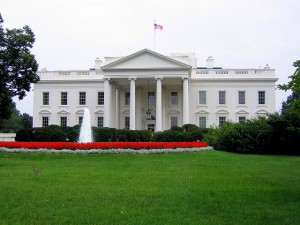It’s Not the President, Stupid (Ep. 65)
[omny:https://traffic.omny.fm/d/clips/aaea4e69-af51-495e-afc9-a9760146922b/14a43378-edb2-49be-8511-ab0d000a7030/65cf18d5-2282-4006-a633-ab0d001be947/audio.mp3]
Our latest Freakonomics Radio on Marketplace podcast is called “It’s Not the President, Stupid.” (You can download/subscribe at iTunes, get the RSS feed, listen via the media player above, or read the transcript here.) The gist: it’s time to admit that the U.S. economy doesn’t have a commander-in-chief.
Over the years, we’ve regularly visited the question of how influential the president of the U.S. really is. This segment focuses on the president’s influence over the economy — which, if you believe polling data, will be the central concern for many voters as the 2012 election unfurls.
In this Marketplace segment, you’ll hear from Austan Goolsbee, the University of Chicago economist who has served President Obama as both campaign adviser and chairman of the Council of Economic Advisers:
GOOLSBEE: I think the world vests too much power, certainly in the president, probably in Washington in general for its influence on the economy, because most all of the economy has nothing to do with the government.
You’ll also hear from Freakonomics blog regular Justin Wolfers, who, along with co-authors Erik Snowberg and Eric Zitzewitz, examined the stock market’s reaction to the 2004 presidential election, during which it was erroneously declared that John Kerry had beaten George Bush, when in fact the opposite turned out to be true. (Ungated paper here.)
FWIW, here’s a TV interview I did with Yahoo! Finance on the topic a few weeks back. And we’ll soon be releasing an upcoming hour-long podcast with an updated version of the President episode, in which you’ll hear at some length from Goolsbee, Steve Levitt, and Donald Rumsfeld. I asked Rumsfeld about parallels between the roles of president and CEO of a company (a role Rumsfeld himself has held). His answer was most interesting:
RUMSFELD: Well, they’re really very, very different, and being good at one doesn’t suggest that one would necessarily be good at the other. The political world is a thing of a different order. Because the powers are divided, a president has to spend a great deal of time dealing with the Congress and dealing with the media, because you communicate to the Congress and the public through the media. And almost anything that’s proposed is going to be debated and discussed openly, immediately. In business, conversely, I mean I could go into a corporation and decide that I want to freeze the dividend, and I could do it as CEO. I could decide I’m going to open a research facility in country X instead of Country Y. I could decide I’m going to downsize or sell off a division, and I did it. And you can be wrong, as well as right, to be sure. But at least you are able to do it. You know, in government, if we put something in place, in one of the departments or agencies, the Congress wants to have hearings on it, they want to pull the plant up by the roots every five minutes to see if it’s still growing and traumatize it, and the press wants to critique it before it’s even fifteen minutes old. It’s enormously different.
If I were a presidential candidate’s campaign adviser, here’s what I’d like him or her to say:
My fellow Americans, I have precious little control over the U.S. economy, even though I and my fellow candidates pretend the opposite is true. There is no “increase employment” button I can push once I get to the Oval Office, no “lower gas prices” button either. It’s true I have a little influence on the direction and shape and velocity of the economy, but mostly it does what it does. So if it gets worse on my watch, you shouldn’t necessarily blame me – and if it happens to get better, you shouldn’t give me too much credit, either.
If I actually did get my candidate to deliver that message, even just once, how long do you think it would be before I got fired?


Comments